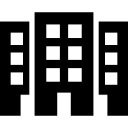



Bolton, a city in the Great Manchester, northwest region under the territory of England, the United Kingdom. The town was earlier acknowledged as Mill Town. During the 14th century, the textile industry got pace, and it became one of the Cotton and Wool Weaving Centers. The urbanisation and development went contemporary with the introduction of textile manufacturing during the Industrial Revolution. The number of the cotton mills was 216. 26 mills were associated with dyeing and bleaching works. It made Bolton one of the prominent centers of cotton spinning in the world. The town population was approximately 1, 39,403 whereas metropolitan borough has a population of roughly 2.6 lakh. There was an unfortunate incident Bolton Massacre happened in the past where the city saw the death of 1600 people and thousands got homeless. Around 700 people were put inside the prison. The most followed football club in the region is Bolton Wanderers. This association brought a lot of name and fame to the city and participated in some championships. A renowned World Heavy Weight Champion, a great Wrestler Amir Khan, belongs to the town.
Governance
The river Coral played a crucial role in the deciding the geographical boundaries of the town. In whole, the city got its division into Great Bolton and Little Bolton. The Bolton has a parliamentarian form of government. It has two constituencies in the way of Bolton West and Bolton East. The Bolton east has further two subdivisions Bolton Southeast and Bolton Northeast. There are 20 wards in the Bolton Metropolitan Council. Bolton has 40 councillors and 3 democrats.
Geography and Demography
The city is located near to West Pennine Moors and northwest of England. It is situated in the middle of the low hills. The town geographical conditions are favourable to little rainfall. As this city owes to hills so it does not experience brisk winds. The city experience high rain in the summer season.
Economy and Transport
56,390 people involved in some manual and skilled work. The lion’s share of people associated with the retail and wholesale trade. This business also includes repair of motor vehicles as well as spare parts of automobiles. The Secondary sector, i.e., manufacturing comprises 18.71% people in this industry. 5% to 6% people employed in the communication sector, storage and transport. The service industries replaced the heavy industry in the last quarter of 20th century. Some of the old times industries still in the race and doing well. These are mainly packaging, textiles, paper-manufacturing, steel factories and building materials for the city. A large network of Markets, Shopping Centres, restaurants, café and public houses attracts so many tourists in the city.
Sports and Education
Bolton Wanderers F.C is the official Football club of the region. The Hockey, Rugby, Cricket, Baseball and Speed Way Racing are other important games played in the city. Bolton school has been giving its services for the primary level education. Later on, this school was facilitated with a new grammar school opened after 1641.
Religion
The Christian churches were constructed during Saxon era. During the time of civil period, there was presence of puritan in the town. 75% People of Bolton City follow Christianity as per the 2001 census. The city has some percentage of people from other religions. These are Hindu, Buddhist, Jewish, Sikh and Muslim. There are a few people who follow no religion.
| Course | Upcoming Event | Duration | Price | ||
|---|---|---|---|---|---|
| PRINCE2® Foundation | 21/04/2025 | 24/04/2025 | 3 Days |
£5494
|
|
| Lean Six Sigma Green Belt | 21/04/2025 | 26/04/2025 | 5 Days |
£6594
|
|
| Lean Six Sigma Yellow Belt | 21/04/2025 | 23/04/2025 | 2 Days |
£5494
|
|
| Lean Six Sigma Black Belt | 21/04/2025 | 01/05/2025 | 10 Days |
£9894
|
|
| PMP® Certification Training | 21/04/2025 | 26/04/2025 | 5 Days |
£6594
|
|
| Change Management Foundation & Practitioner | 21/04/2025 | 26/04/2025 | 5 Days |
£6594
|
|
| Change Management Foundation Training | 21/04/2025 | 24/04/2025 | 3 Days |
£5494
|
|
| MSP® Foundation & Practitioner | 21/04/2025 | 26/04/2025 | 5 Days |
£6594
|
|
| MSP® Foundation | 21/04/2025 | 24/04/2025 | 3 Days |
£5494
|
|
| CompTIA A+ Course | 21/04/2025 | 26/04/2025 | 5 Days |
£6814
|